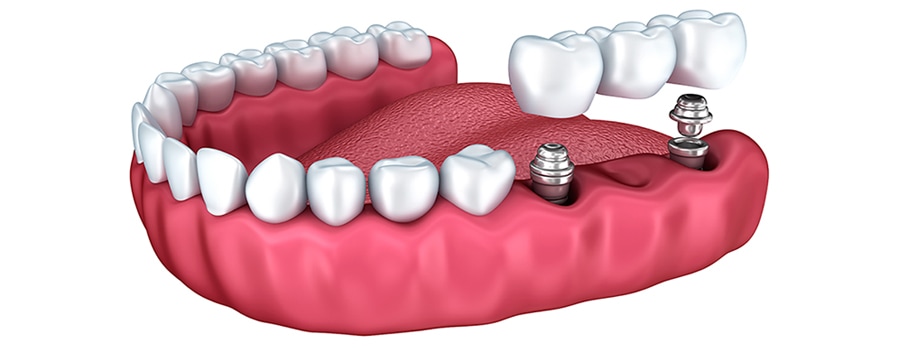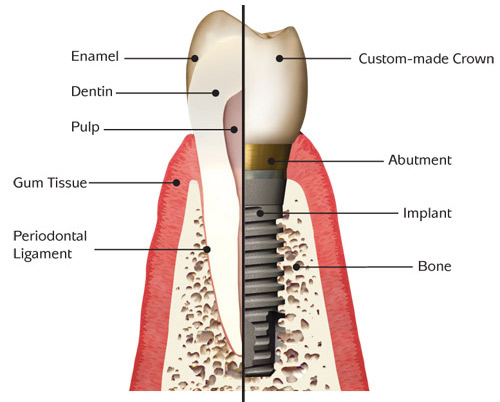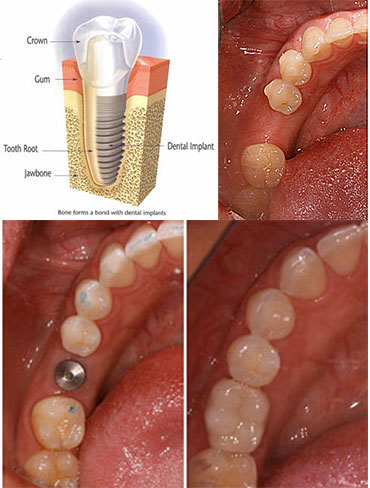WHAT ARE DENTAL IMPLANTS?
Permanent solution for tooth loss
Dental implants are metal anchors placed in the jaw bone underneath the gum tissue to support artificial teeth where natural teeth are missing. Implants are usually made from titanium, which is readily accepted by the body. A ceramic crown is then made which attaches to the implant and emerges through the gum to look extremely natural.
Dental implants have been in use for many years, and hundreds of thousands have been placed. Due to a phenomenon known as “osseointegration” meaning that bone actually attaches itself to the implant, these anchors provide a strong foundation that allows people with missing teeth to chew efficiently and comfortably. They are very successful because they look entirely natural and cause no damage to adjacent teeth.
Any surgical or invasive procedure carries risk. Before proceeding , you should seek a second opinion from an appropriately qualified health practitioner.


Who needs implants?
Anyone who is missing teeth and can benefit from increased chewing efficiency, and improved appearance or speech, is a candidate for dental implants. Implants can be the solution when it has become difficult or impossible to wear a removable denture. Portions of the jaw that are missing due to an accident, disease, or birth defect can often be reconstructed using implants.
Am I a candidate for implants?
You are a candidate if:
- you have enough jaw bone, and dense enough bone, to secure the implants,
- you do not have a disease or condition that interferes with proper healing after implant surgery (e.g. uncontrolled diabetes, or radiation/chemotherapy for treating cancer),
- as a rule, age is no barrier to implant treatment if you are in good health. People of all ages are turning to dental implants to replace a single missing tooth, several teeth or all their teeth.
Treatment occurs over several months to allow the implant to osseointegrate before the crown can be made and attached. In some circumstances and after consultation with the referring Periodontist or Oral Surgeon, a temporary crown can be attached by Dr Biscoe immediately after surgery. In cases involving trauma or misadventure that requires extraction of the tooth, it may also be possible to arrange for extraction, placement of the implant and attachment of a temporary crown in one session in certain circumstances.









